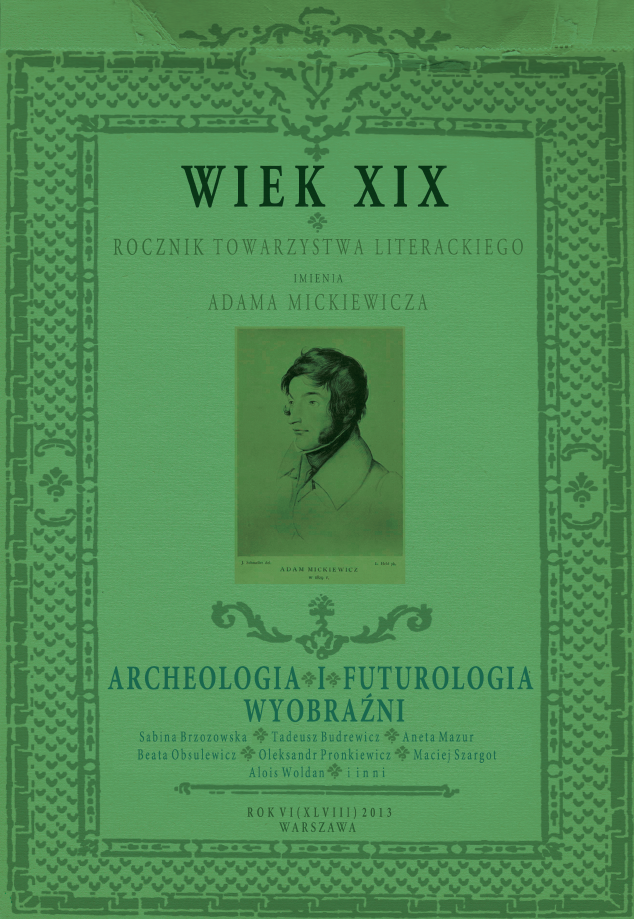„Jeżeli ja nie opowiem, nikt nigdy wiedzieć nie będzie…”. Rok 1863 w zapisach Elizy Orzeszkowej
“If I do not tell, nobody will ever know…”. Year 1863 in the Notes of Eliza Orzeszkowa
Author(s): Ireneusz SikoraSubject(s): Language and Literature Studies, Studies of Literature, Polish Literature
Published by: Towarzystwo Literackie im. Adama Mickiewicza
Keywords: Eliza Orzeszkowa; January Uprising; memory; epistolary
Summary/Abstract: Thanks to the archival research of Edmund Jankowski and the scholarly biography of the writer, we know that Orzeszkowa was directly involved in preparations to the January Uprising. Following the outburst of the Uprising, she was helping insurgents; she was brave enough to hide, inter alia, Romuald Traugutt. Orzeszkowa saved his life by transporting him in her own carriage to the border of the Kingdom of Poland. The future writer witnessed the terrible supression of Lithuania by the Russians in years 1863–1864. This most tragic experience of her generation had an enormous impact on her. When Orzeszkowa became a writer, she gradually started recalling these events in her writing in order to pay tribute to the heroes of the January Uprising and to commemorate the truth about their sacrifice and heroism. For this purpose, Orzeszkowa used the literary code of the “Aesopian speech.” The extensive correspondence of Orzeszkowa documents her participation in the January Uprising, testifies to her participation in the Uprising, as well as to the presence of insurrectionary topics in her literary works other than "On the Banks of the Niemen" and the collection of short stories entitled "Gloria Victis". Paying homage to the people of 1863, Orzeszkowa confessed in one of her letters – “If not for «he hammer and the chisel» of the Uprising, I would never become a writer.”
Journal: Wiek XIX. Rocznik Towarzystwa Literackiego im. Adama Mickiewicza
- Issue Year: LXVIII/2013
- Issue No: 1
- Page Range: 347-372
- Page Count: 26
- Language: Polish

